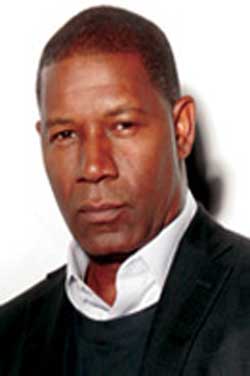
By Janice Rhoshalle Littlejohn
In his own life, Dennis Haysbert is a stalwart disciple of the self-help bibles How to Visualize What You Want and The Power of Positive Thinking. They have allowed him to imagine himself right where he has wanted to be: on the covers of publications such as TV Guide and Ebony and having the chance to play the president of the United States.
Has Haysbert ever envisioned a world without HIV/AIDS? “I see it,” he replies. “The only question is, once we cure this thing, does everybody get back to normal?” he asks, wondering if people will engage in high-risk behaviors as they did before the epidemic.
Making HIV/AIDS testing routine within the Black community has driven Haysbert’s involvement in the cause for more than a dozen years. He joined the Harlem Health Expo’s AIDS awareness campaign in 1999 while in New York City shooting the 1999 CBS drama Now and Again. “I was one of the first African American actors to be tested on-screen to destigmatizethe act of being tested,” says the perennially popular Allstate pitchman, who will be starring in The Details this summer with Tobey Maguire, Laura Linney and Ray Liotta.
For both Black men and women in the United States, having unprotected sex with a man is the leading cause of HIV infection, according to the Kaiser Family Foundation. In addition, 85 percent of African American women living with HIV were infected through heterosexual sex, and Black women account for more than half of the country’s entire female epidemic.
Of Black men living with HIV, 20 percent were infected through heterosexual contact.
His message to the brothers: “Wake up!” Haysbert, 57, booms with his resounding, authoritative tone, refraining from the expletives that he says could really bring his point home. “This is about your life and the quality of your life. Nothing else matters.”
The fact that Secretary of State Hillary Rodham Clinton has communicated the Obama administration’s vision of creating an AIDS-free generation in our not-too-distant future continues to bolster Haysbert’s optimism. After all, new antiretroviral medicines not only keep those infected alive but can also help reduce the transmission of the disease.
“So they may die of something else, but they won’t die of this,” he says. “And that’s what I’m hoping for.”
Janice Rhoshalle Littlejohn is a Los Angeles-based freelance journalist, author and documentary filmmaker.
